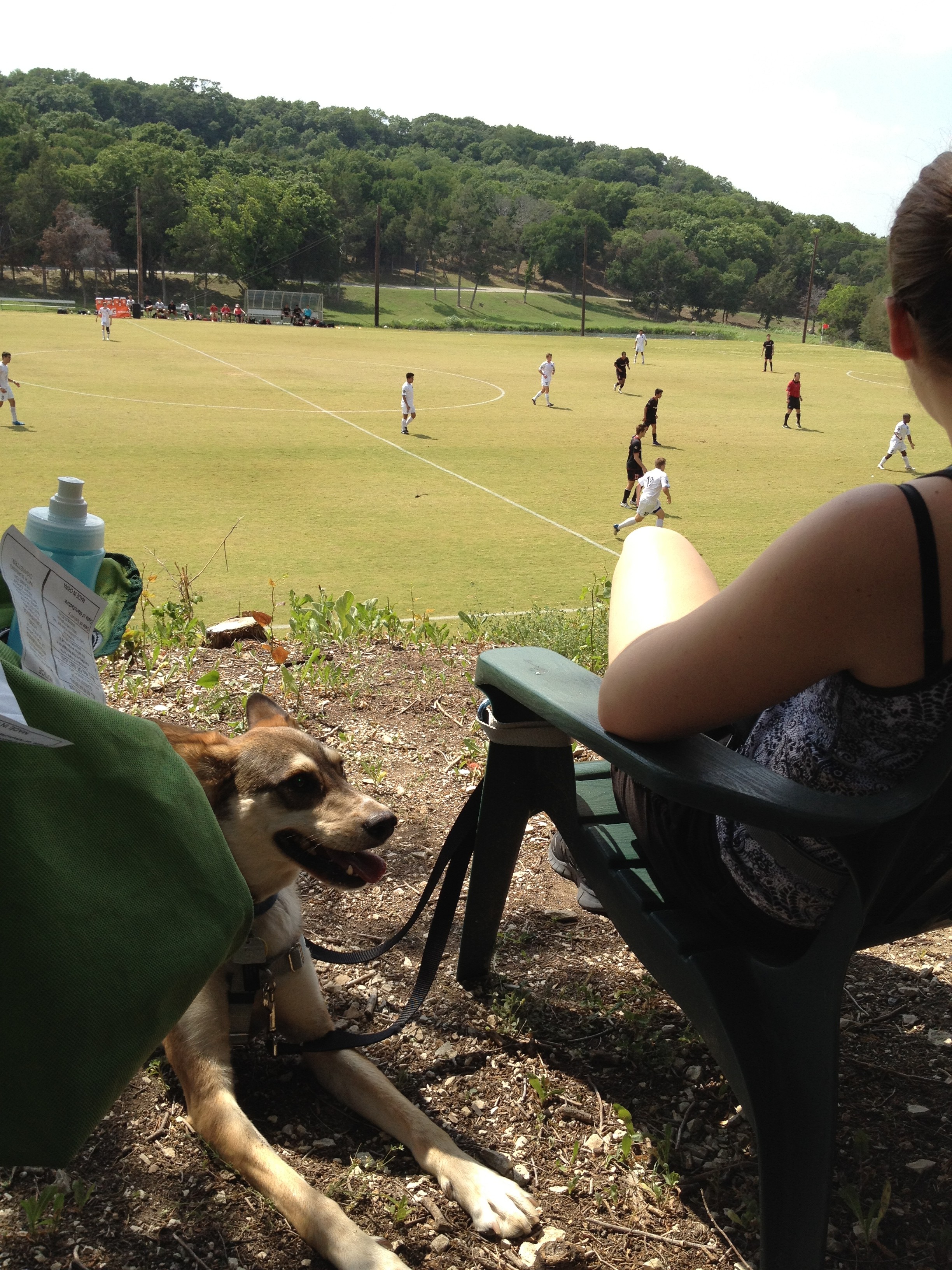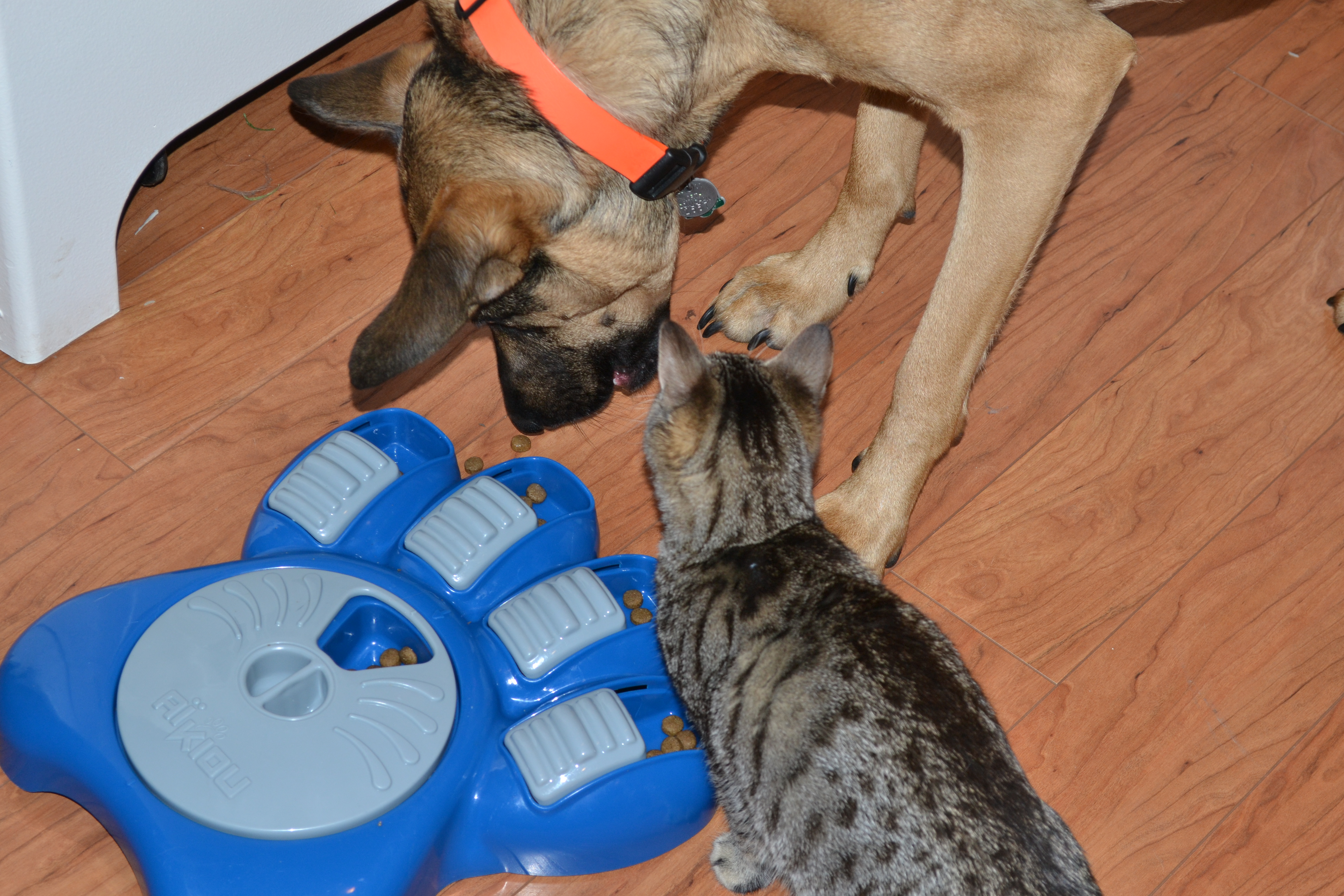
In this image I was using high frequency rewards to keep him in the down position. He looks a little stressed in this picture so there may have been cheering at this time or it was very warm that day and he is readjusting to the Texas heat!
I don’t think you can really practice too much as long as you give your dog breaks. This past weekend I went to my little (high school senior) brother’s soccer game. My family was in town and I wanted to join them on the field. I knew this would be a great opportunity to work with Loker on loud noises (cheering and clapping hands) as well as loose leash walking around lots of people (not necessarily dogs). He got lots of rewards every time the small crowd cheered and I worked on keeping him in the down position in this highly distracting setting. I was impressed that I was able to keep his attention on me most of the time – that means I brought the right reward for the situation – boiled chicken! Bringing the right reinforcement means the reward for listening to you is worth more than anything else in the environment.
One mistake many people make is not bringing the right reward for the situation. You can’t be afraid to bring super high value rewards to a highly distracting situation. What you use at home will usually be anything but motivating in a highly distracting area. Highly distracting situations can be group training classes, neighborhood park with other dogs, pet stores that allow pets, pet events, or any situation that your dog may be nervous or aroused in. If you bring the same old treats from home, your dog will not pay attention. It isn’t that he is “blowing you off”, it is because there are more highly rewarding things going on in the environment and those are more motivating than what you brought. And let me clarify, you are NOT bribing him, you are simply offering a delicious reward for doing what you ask. Bribing would be dangling the treat right in front of his nose and saying “if your sit Ill give you this chicken!” This is why it is critical to train in such a way that food motivation can be phased out once the dog knows what to do. If you are using the techniques correctly it is absolutely possible to remove food as the motivation and replace it with play or praise. After all, you should be teaching the dog to work for you, not the treat.
Another mistake is using the same treats for all training. For some dogs this may not be a problem, however, if you are having issues with keep your dog’s attention try to reserve certain treats for certain situations. For example, I only use chicken/hot-dogs for super distracting situations, like here on the soccer fields or in our group class. This will help the treat keep it’s value because you dog will know this is the only time it get’s such delicious rewards!
Keep on training! Practice makes almost perfect! 😉



